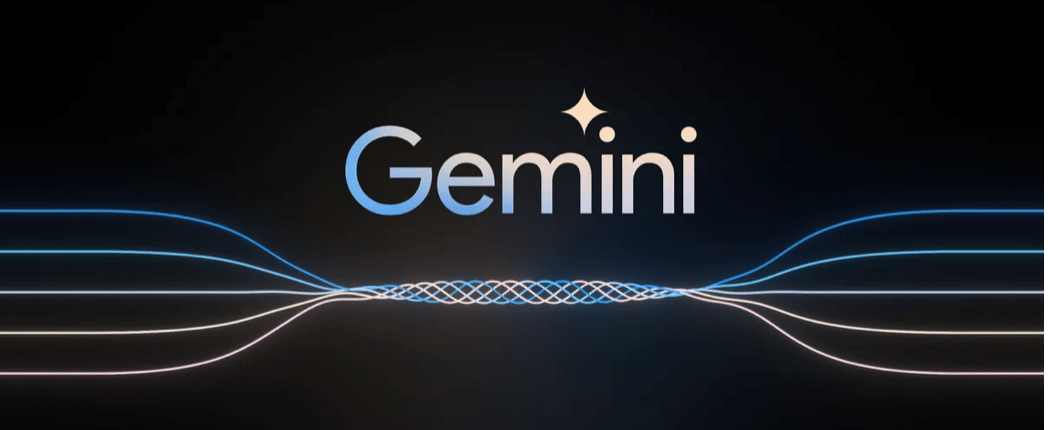The wait is over. Google has finally introduced Gemini.
Gemini is built from the ground up to be multimodal, which means it can generalise and seamlessly understand, operate across and combine different types of information including text, code, audio, image and video.
“Gemini is the result of large-scale collaborative efforts by teams across Google, including our colleagues at Google Research,” said Demis Hassabis, CEO and Co-Founder of Google DeepMind.
Gemini is designed for versatility, capable of running efficiently on a wide range of platforms, from data centers to mobile devices.
The model comes in three optimised versions: Gemini Ultra, tailored for highly complex tasks; Gemini Pro, ideal for scaling across various tasks; and Gemini Nano, a highly efficient model for on-device applications.
“This new era of models represents one of the biggest science and engineering efforts we’ve undertaken as a company,”said Google chief Sundar Pichai in the blog post.
Commencing today, Gemini 1.0 will be gradually rolling out across Google products, with Gemini Pro being integrated into Google’s Bard for advanced reasoning and planning. Additionally, Gemini Nano powers features in the Pixel 8 Pro smartphone, offering capabilities like Summarize in the Recorder app and Smart Reply in Gboard.
Developers and enterprise customers can access Gemini Pro via the Gemini API in Google AI Studio or Google Cloud Vertex AI starting December 13. Gemini Ultra, currently undergoing extensive trust and safety checks, will be available for early experimentation and feedback before a broader release in early 2024.
Over the next few months, Gemini is set to extend its presence to various Google products and services, including Search, Ads, Chrome, and Duet AI. The experimentation with Gemini has already commenced in the Search domain, resulting in a remarkable 40% reduction in latency for English users in the U.S. within the Search Generative Experience (SGE), coupled with enhanced overall quality.
In extensive testing, Gemini Ultra has exhibited state-of-the-art performance, surpassing human experts on the Massive Multitask Language Understanding (MMLU) benchmark with an impressive score of 90.0%. This benchmark encompasses 57 subjects, spanning math, physics, history, law, medicine, and ethics, showcasing Gemini’s comprehensive understanding and problem-solving capabilities.
Gemini’s multimodal capabilities extend to surpassing state-of-the-art performance on various benchmarks, including text, coding, and multimodal tasks. The model’s native multimodality, a departure from traditional approaches, contributes to its superior performance in conceptual and complex reasoning.
The model’s sophisticated reasoning capabilities enable it to extract insights from vast amounts of written and visual information, facilitating breakthroughs in fields ranging from science to finance.
Gemini’s proficiency in understanding text, images, audio, and more simultaneously positions it as an adept tool for explaining reasoning in complex subjects like mathematics and physics.
Notably, Gemini excels in advanced coding, demonstrating the ability to understand, explain, and generate high-quality code in popular programming languages. Its application extends to serving as the engine for more advanced coding systems, such as AlphaCode 2, which outperforms its predecessor in solving competitive programming problems involving complex mathematics and theoretical computer science.
Gemini 1.0 was trained at scale using Google’s Tensor Processing Units (TPUs) v4 and v5e, resulting in a model that is not only powerful but also efficient and scalable. The announcement of Cloud TPU v5p, the most powerful TPU system to date, further underscores Google’s commitment to accelerating AI model development and deployment.
Emphasising responsibility and safety, Google has conducted extensive safety evaluations on Gemini, addressing potential risks such as bias and toxicity. The company has collaborated with external experts to stress-test the model across various issues and implemented safety measures, including dedicated classifiers to identify and filter out content involving violence or negative stereotypes.
The post Much-Awaited Google Gemini Finally Arrives appeared first on Analytics India Magazine.
Disclaimer
We strive to uphold the highest ethical standards in all of our reporting and coverage. We StartupNews.fyi want to be transparent with our readers about any potential conflicts of interest that may arise in our work. It’s possible that some of the investors we feature may have connections to other businesses, including competitors or companies we write about. However, we want to assure our readers that this will not have any impact on the integrity or impartiality of our reporting. We are committed to delivering accurate, unbiased news and information to our audience, and we will continue to uphold our ethics and principles in all of our work. Thank you for your trust and support.



![[CITYPNG.COM]White Google Play PlayStore Logo – 1500×1500](https://startupnews.fyi/wp-content/uploads/2025/08/CITYPNG.COMWhite-Google-Play-PlayStore-Logo-1500x1500-1-630x630.png)